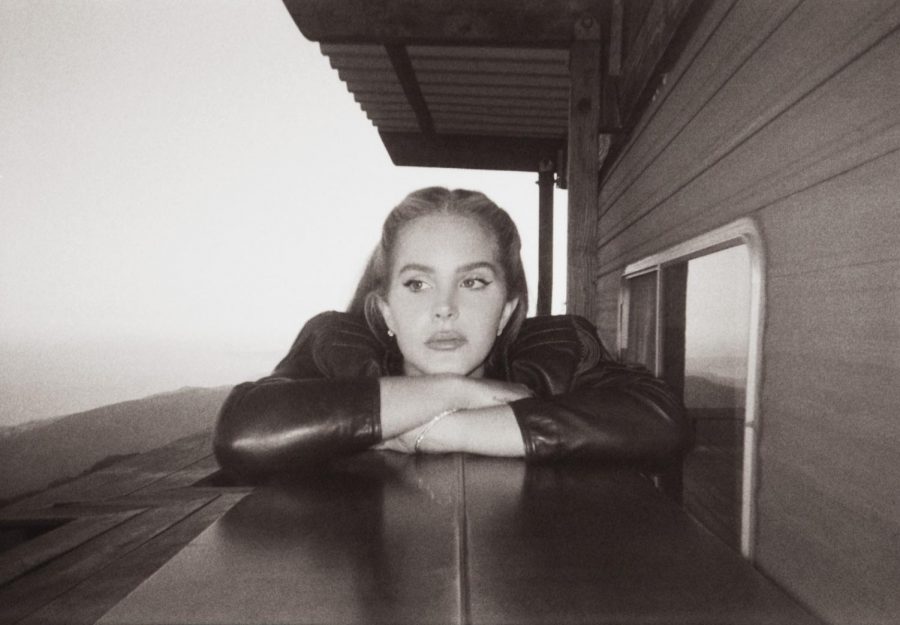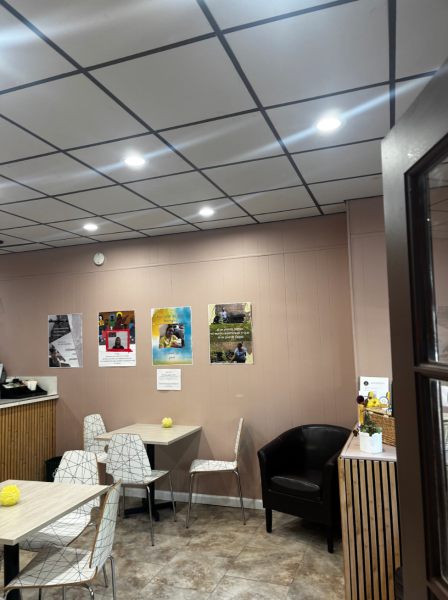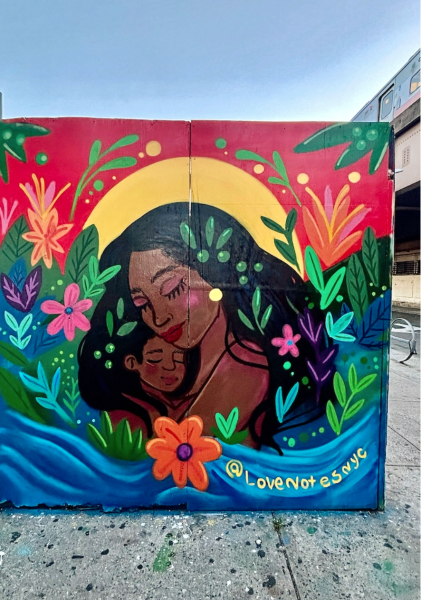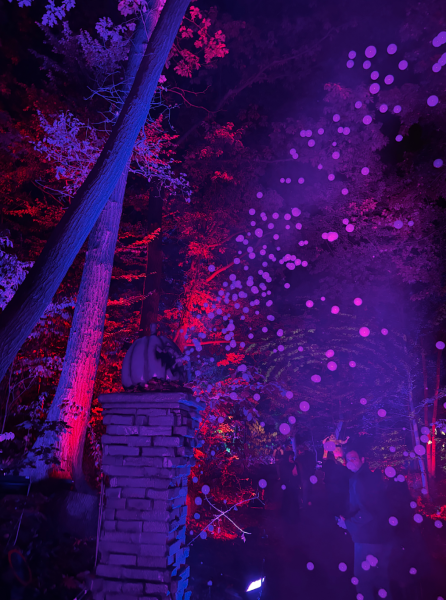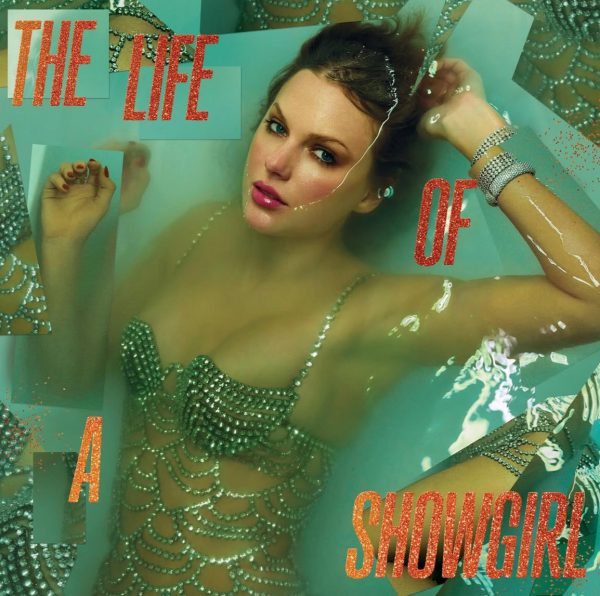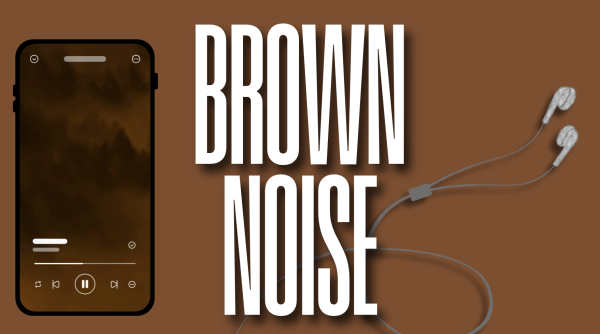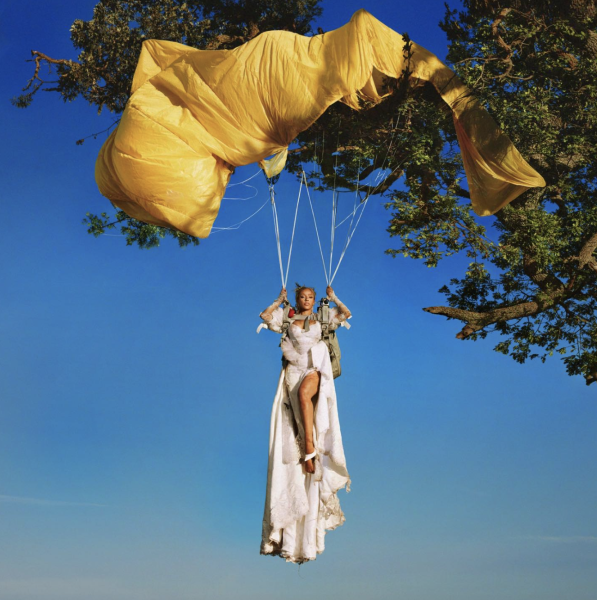Lana Del Rey’s “Chemtrails Over the Country Club” Is More Unoriginal Than Exceptional
Since the release of her first studio album in 2012, Lana Del Rey has blossomed into America’s favorite alluring singer-songwriter with blissful ignorance that embodies not only the subjects represented in her music, but America as a whole. Her latest album “Chemtrails Over the Country Club” was released on March 19, 2021. The music video for the album’s first track, “White Dress,” looks as if every possible American symbol, from a sunset-painted road to a golden retriever, was thrown into a poorly-made kaleidoscope of American suburbia.
Del Rey’s artistic direction has been repeated yet and again throughout her career. Despite receiving praise for her previous albums’ individuality, “Chemtrails over the Country Club” finds Del Ray searching throughout Texas, Louisiana and more for the same melodramatic romance she has written about before.
As with her previous Grammy-nominated album “Norman F—ing Rockwell!,” this release has received vast critical acclaim, earning five-star reviews from The Independent, NME and The Telegraph. Since its release, “Chemtrails Over the Country Club” has sold at an incredibly high rate, becoming the fastest-selling vinyl record of any female act in the U.K.
Although much of her thematic content has remained the same since 2012, much of Del Rey’s popularity has come from distancing herself from the mainstream pop industry, no longer producing dance remixes or remastered editions with A$AP Rocky. The album discusses her disillusionment with fame and her unrelenting connection to her perception of the American dream. Songs like “Tulsa Jesus Freak” and “Yosemite” feature introspective lyrics about her career and her current position, incorporating midwest Americana and ignoring the common directions of her fellow female stars.
On May 21, 2020, her infamous “Question for the Culture” launched an internet firestorm as she called out predominantly female pop stars of color, saying, “Now that Doja Cat, Ariana [Grande], Camila [Cabello], Cardi B, Kehlani and Nicki Minaj and Beyoncé have had number ones with songs about being sexy, wearing no clothes, f—ing, cheating etc, can I please go back to singing about being embodied, feeling beautiful by being in love even if the relationship is not perfect.” To many, her critical review of the industry’s over-saturated themes of sex and promiscuity seemed self-righteous and hypocritical. Her condemnations of these women for not following her more ladylike, decorous style led some to say Del Rey was holding women back at the height of pop music’s female empowerment era. As artists like Megan Thee Stallion and Dua Lipa dominate at the Grammys, Del Rey exists in the shadows, standing still while glorifying a dying representation of femininity that is anything but fresh in the entertainment industry.
These Instagram comments are far from her only viral controversy. She has repeatedly clashed with other musicians, celebrities and members of the media over topics ranging from the Black Lives Matter movement to Donald Trump’s presidency. Although she does not represent an image of conservatism, her frequent independent beliefs and admiration for traditions and gender roles have made her stand out from the rest of America’s female stars. However, this independent image has made Del Rey’s musical career. As portrayed by the title, her love of traditional Americana and her debutante ball classiness are evident throughout “Chemtrails Over the Country Club.”
Undoubtedly, the album’s sonic output is well done, incorporating Del Rey’s intimate softness with Jack Antonoff’s light, folksy production. “Dance Till We Die” stands out as the project’s best track while paying homage to greats like Joni Mitchell, Joan Baez and Stevie Nicks. Del Rey later covers Mitchell’s song “For Free” with Zella Day and Weyes Blood, both artists who embody the tradition of their 1970s singer-songwriter predecessors. Some genre-bending techniques can be seen across the album with “Breaking Up Slowly,” incorporating a melancholic Southern country style, and “Let Me Love You Like A Woman,” sounding increasingly contemporary. “Chemtrails Over the Country Club” is where Del Rey can be seen most as a singer-songwriter as she commits to finding her natural voice.
In terms of aesthetic and ambience, the album delivers. However, once approaching its 45 minute runtime, it feels like a redundant loop of the same artistic influences, high-femme romanticism and lyrical content. Her disenchantment with fame is hardly an original topic for musicians and can be seen as maladroit when balanced with her glamorous, bourgeois persona. To simplify, Lana Del Rey’s “Chemtrails Over the Country Club” is a soothing singer-songwriter album with plenty of exemplary vocal performances, but it is hardly the artistic masterpiece that many have perceived it to be.





































































































































































































